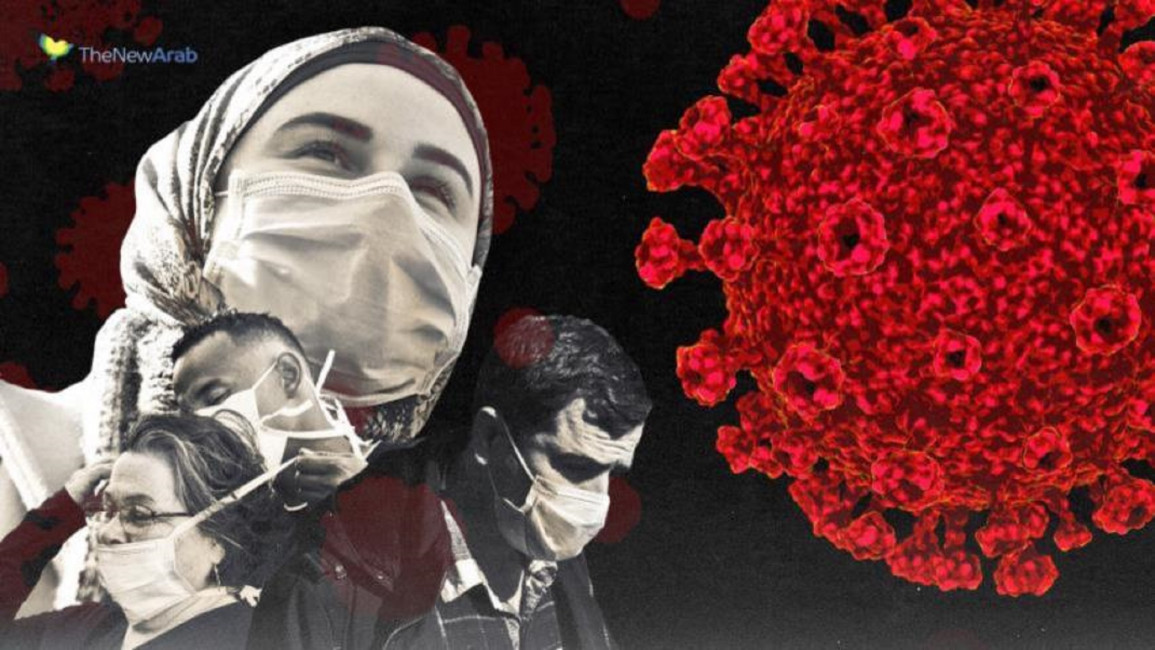The Middle East at war with coronavirus: Top stories from 8 May
Here are five stories you need to know about the coronavirus pandemic and how it is affecting the Middle East on 8 May:
1. UN agency for Palestinian refugees launches urgent coronavirus appeal
The United Nations agency for Palestinian refugees (UNRWA) launched an emergency coronavirus appeal Friday, saying Palestinians across the Middle East were suffering a devastating socio-economic impact.
The agency appealed for $93.4 million for the next three months to provide food and cash assistance to the vulnerable.
While the number of Palestinian refugees infected with Covid-19 has so far been relatively low, they often work in informal sectors and are facing devastating economic repercussions from the crisis, UNRWA said.
Elizabeth Campbell, the agency's Washington director, told an online press conference they were launching the appeal "amidst the biggest financial crisis in our history".
Read more here.
Iran urged its citizens to take social distancing "more seriously" on Friday as it announced more than 1,500 new cases of coronavirus infection in the country referred to as the "epicentre" of the virus in the Middle East.
Health ministry spokesman Kianoush Jahanpour said 55 new virus fatalities in the past 24 hours took the overall death toll in the health crisis to 6,541.
He said another 1,556 people tested positive for the novel coronavirus over the same period of time, taking the country's caseload to 104,691.
"We (Iranians) are urged to continue to follow health advice, especially social distancing, more seriously than on previous days and weeks," Jahanpour said in televised remarks.
Read more here.
|
|
3. Half of migrants in Tunisia lose jobs as a result of coronavirus pandemic
Some 53 per cent of migrant workers in Tunisia have lost their jobs as a result of stringent lockdown measures imposed by authorities in order to contain the spread of the novel coronavirus.
The IOM noted that the employment rate of migrants in the country had dropped from 64 per cent to 11 per cent in the period from 22 March, when Tunisia's general quarantine was imposed, to 3 May.
Tunisian state and municipal authorities are working with the IOM to provide social and economic assistance to migrants living in Tunisia, and 39 per cent of migrant workers with children have received aid.
Read more here.4. Sisi ratifies emergency law amendments sparking rights concerns
President Abdel Fattah al-Sisi has ratified several amendments to Egypt's emergency law which an international rights groups says expands "repressive powers" as the country battles the coronavirus.
Egypt has been under a state of emergency since April 2017 when twin church bombings claimed by an Islamic State group affiliate killed dozens of people.
The amendments, approved by parliament, give Sisi and security agencies "additional sweeping powers", according to Human Rights Watch.
They allow the president to close schools, suspend public sector work, ban public and private gatherings and quarantine inbound travellers.
Read more here.5. UN accuses Syrian fighters of upping attacks on civilians during coronavirus pandemic
United Nations rights chief Michelle Bachelet lamented a surge in violence in the country already ravaged by nearly a decade of conflict.
"We are receiving more reports every day of targeted killings and bombings from one end of the country to the other, with many such attacks taking place in populated areas," she said.
The rights chief highlighted that the surge in violence comes as the world is focused on halting the spread of the novel coronavirus, which has killed nearly 270,000 people worldwide.
Read more here. |
t.
Follow us on Facebook, Twitter and Instagram to stay connected



